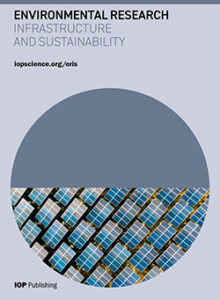ERIS特刊征稿|Cities and Local Action for Urban Climate Resilience

特刊详情
客座编辑
- Rebekah Shirley,世界资源研究所(肯尼亚)
- Tierra Bills,美国加利福尼亚大学洛杉矶分校
- Aklilu Fikresilassie,世界资源研究所(埃塞俄比亚)
主题范围
Cities and urban areas play a major role in climate change. Despite accounting for less than 3% of global terrestrial area, cities have had a huge impact on biodiversity, global emissions, and energy consumption. Cities have become responsible for 78% of carbon emissions, as much as 76% of global energy use, and 60% of residential water use. At the same time, cities house significant infrastructure crucial to national and international economies, creating high levels of vulnerability to climate change. In fact, urban poor communities represent some of the greatest vulnerabilities across the globe.
Notwithstanding these dual and closely interdependent risks, many cities are yet to implement significant changes to reduce emissions and improve resilience. This slow urban response to climate change is often attributed to limited public policy, and public finance. However, there are now emerging hundreds of towns, municipalities, and cities across the globe that are transforming the trend, by showing the potential of cities to be responsive to climate demands through multi-level partnership. The role of their leaders – subnational actors that have long been left on the sidelines of climate summits and negotiations – is becoming far more central to national climate action. In fact, the first-of-its kind “Local Climate Action Summit” at COP28 in Dubai, UAE, assembled more than 500 mayors, governors and other subnational leaders for the first time at a COP, to elevate the role of cities in climate action.
This special issue is motivated by the need to highlight experiences, innovations, and successes in local climate action at the city level, particularly from the global south. Shared experience in approaches to fortify vital urban economic, social, and natural infrastructures are crucial for replication. The Issue focuses on case studies of:
- urban infrastructure design for sustainability,
- urban decarbonization and mitigation action,
- locally led urban adaptation,
- integrated or collaborative approaches to urban planning and action,
- gender and social equity mainstreaming into urban planning,
- finance, policy, and governance for urban climate action, or
- the role of urban data in decision making, and related themes.
The Special Issue welcomes – but is not limited to – both fundamental research and applied case studies across a wide spread of sectors, including:
- building and housing infrastructure,
- energy transformation (e.g. sustainable energy access and usages),
- sustainable and equitable transportation solutions,
- clean water provision and other public utility services,
- urban enterprise, commerce and more.
Through elevating such methods and findings, this Special Issue aims to demonstrate the scale of opportunities for urban action on climate change, identify critical data and information gaps for decisions and investment, and disseminate lessons and experiences on sustainable and scalable models for low resourced or “global south” cities.
投稿流程
特刊文章与ERIS期刊常规文章遵循相同的审稿流程和内容标准,并采用同样的投稿模式。
有关准备文章及投稿的详细信息,可以参阅IOPscience页面的作者指南。
作者可登入期刊主页进行在线投稿,在“文章类型”中选择“特刊文章”,并在“选择特刊”的下拉框中选择“Focus on Cities and Local Action for Urban Climate Resilience”。
投稿截止日期:2024年11月30日。
期刊介绍

- 2023年影响因子:2.7 Citescore:2.7
- Environmental Research: Infrastructure and Sustainability(ERIS)是一本涵盖多学科的开放获取期刊,本期刊旨在发表针对各种规模和地理环境的基础建设及其相关系统所面临的各种挑战的研究,以及更广泛意义上的可持续性和持久性研究,包括环境、经济和社会因素等。我们欢迎包括定性、定量、实验性、理论及应用研究的所有方法学研究。
